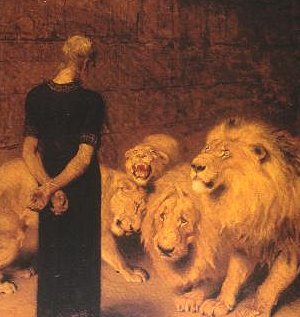Martyred Apostles Confirm the Gospel Stories?
Joseph Francis Alward

This short commentary addresses some of the common apologetic arguments Christians bring to bear on the issue of the gospel stories.
If the gospel stories about Jesus were false, the apostles would have
said so.
Not necessarily. This assumes that the gospel stories were in circulation at the time the apostles died. However, the gospels were written between 70-120 AD, about forty to ninety years after the events alleged in the gospel stories. If the average age of the apostles at the time they allegedly walked with Jesus was 20 years, then they would have been between 60-100 years old when the stories were written. The life expectancy in those days was 40 years, so there is a good chance all of them were long already dead before the first gospel story about Jesus was written. Thus, the apostles prior to the time of their deaths would obviously not be in a position to deny stories if they had not yet in circulation because they had not yet been written.
Why else would the apostles have died for Jesus, if it wasn’t because
they had direct knowledge of his being the son of God?
This is a standard apologetic argument
advanced by Christians in support of their belief that the alleged martyrdom of
the apostles was proof that they saw Jesus work miracles and knew therefore
that he was the son of God, and that they would be live in everlasting bliss in
the kingdom of God if they did not forsake Christianity. They happily risked martyrdom, they say,
because they would have known that upon their death that they would live
forever in infinite bliss in the heavenly
Christians who make this argument apparently don’t believe that the apostles would have let themselves be killed unless they knew for sure that the Jesus they allegedly walked with was God. The fact that they willingly died for Jesus proves the truth of the gospel stories, they say. They never would have martyred themselves if they knew the gospel stories were fictional, they argue. However, what these Christians overlook is the possibility that those who martyred themselves hadn’t actually witnessed any miracles, but merely believed with all their heart and soul that Jesus did perform the miracles alleged in the gospel stories and that he was the son of God, just as faithful Christians today sincerely believe that Jesus existed and worked miracles. The apostles then, as is the case for faithful Christians today, believed that if they place their faith in Jesus, they would get their reward in heaven.
Dying for one’s faith is nothing new; people do it every day, but those willing deaths don’t prove the truth of the martyr’s belief. They only prove that the believer's faith is extremely strong--so strong in fact that they’re willing to die for it. Examples of this type martyrdom for one’s faith abound in the 20th Century. Suicide-bombing Palestinians believe in their god, too, but their willingness to die doesn’t prove that the stories about Allah being god are true.
In1997, thirty-nine well-educated
members of the so-called “Heaven’s Gate” cult, many of whom were computer
programmers who worked on the cult’s web sites, committed suicide in a town
near
The same type of psychology would have been at work in the minds of members of other religious groups of the 20th Century who willingly die for their beliefs, including for example the nine-hundred faithful Peoples’ Temple followers of Jim Jones in Guyana, and the 76 members of David Koresh's Branch Davidians, who believed him when he told them he was the divinely appointed head of the biblical House of David, and an angel and agent of God, and allowed themselves to die in the fire at the church compound in Waco, Texas.